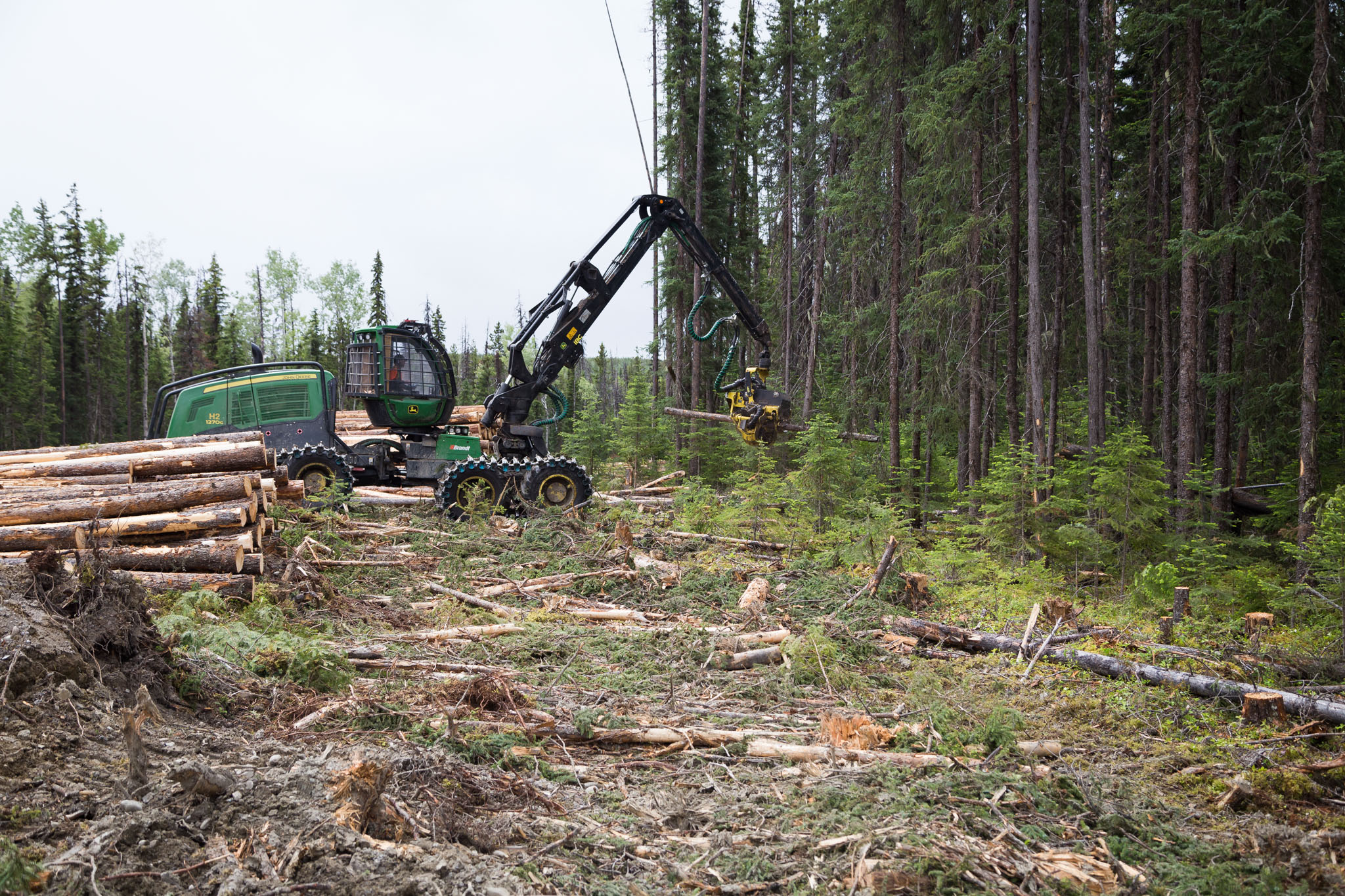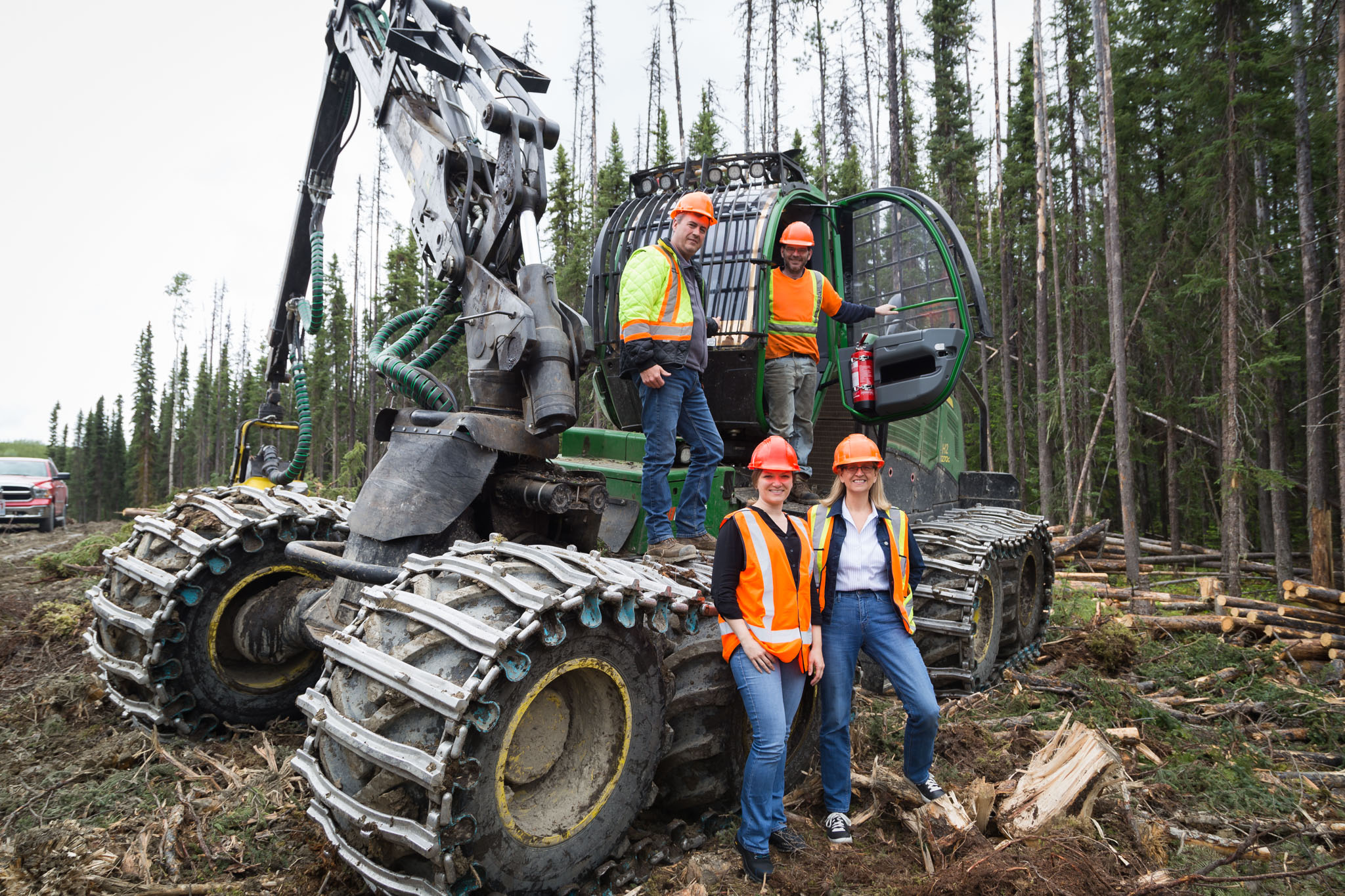
Photo: The Trust’s business development team visits one of Lo-Bar’s test plots
Credit: Northern Development
Lo-Bar successfully completes commercial tree thinning trial east of Prince George
In the summer of 2018, Lo-Bar Log Transport Co Ltd successfully applied to Northern Development’s Northern Industries Innovation Fund for a $50,000 grant to help with the costs of a $468,209 project. Lo-Bar intended to conduct an eight-month trial period to see if the practice of commercial tree thinning was feasible for their business.
“We were very interested in completing commercial thinning during a trial period,” said Marty Hiemstra, business manager at Lo-Bar. “FPInnovations put on a workshop earlier in the year about commercial thinning which piqued our interest. Our owner saw this done in Europe, and he was keen to try it.”
Commercial thinning is a practice that has been proven in many parts of the world and, following Lo-Bar’s project, in Northern B.C. The process utilizes specialized equipment that can be easily maneuvered through tight spaces without leaving wide trails to reduce impact on crop trees. The equipment operator selectively harvests trees in strips approximately five metres wide that preserves the best quality trees with appropriate spacing. Each five-metre path is separated by a 20-metre-wide swath of trees. From the trail, the operator can reach into the tree stand on either side and remove stems, or trees, that had quality defects such as scars, broken tops or forks.
“It was a nice change from our standard practice of clear cut,” Hiemstra explained. “It’s a different way of managing and helping the forest for the future. All the merchantable material that was cut during the thinning was removed and delivered to local facilities.”
By removing lower quality trees early in the growth process, the remaining trees experience accelerated growth. Trees are able to grow faster because the removal of select trees removes competition for light, water and nutrients in the stand. The trees that are removed would likely lose the competition for growth resources and would die within the stand. By harvesting the live tree, they may be transformed into lumber, pulp or biofuel.
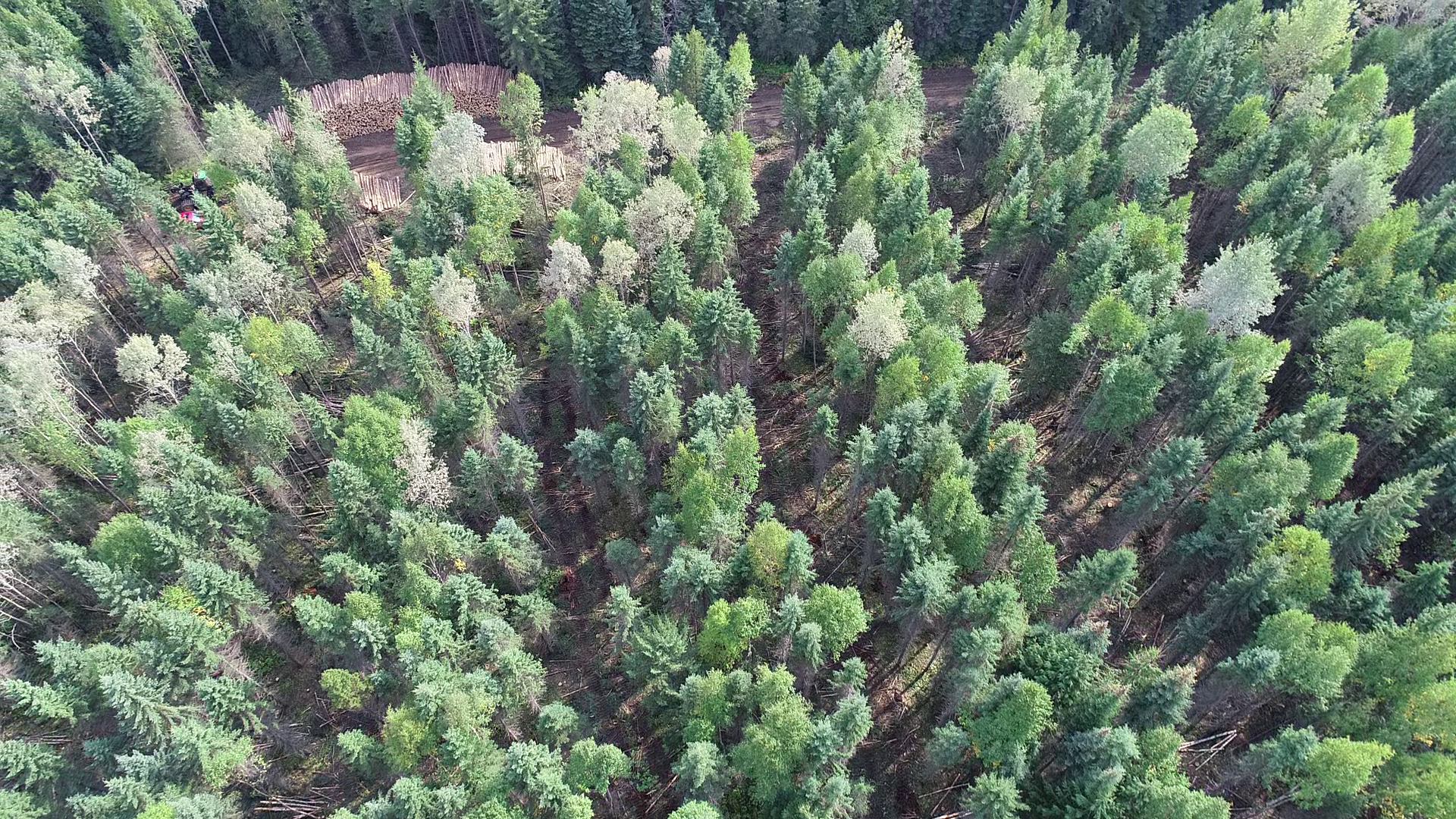
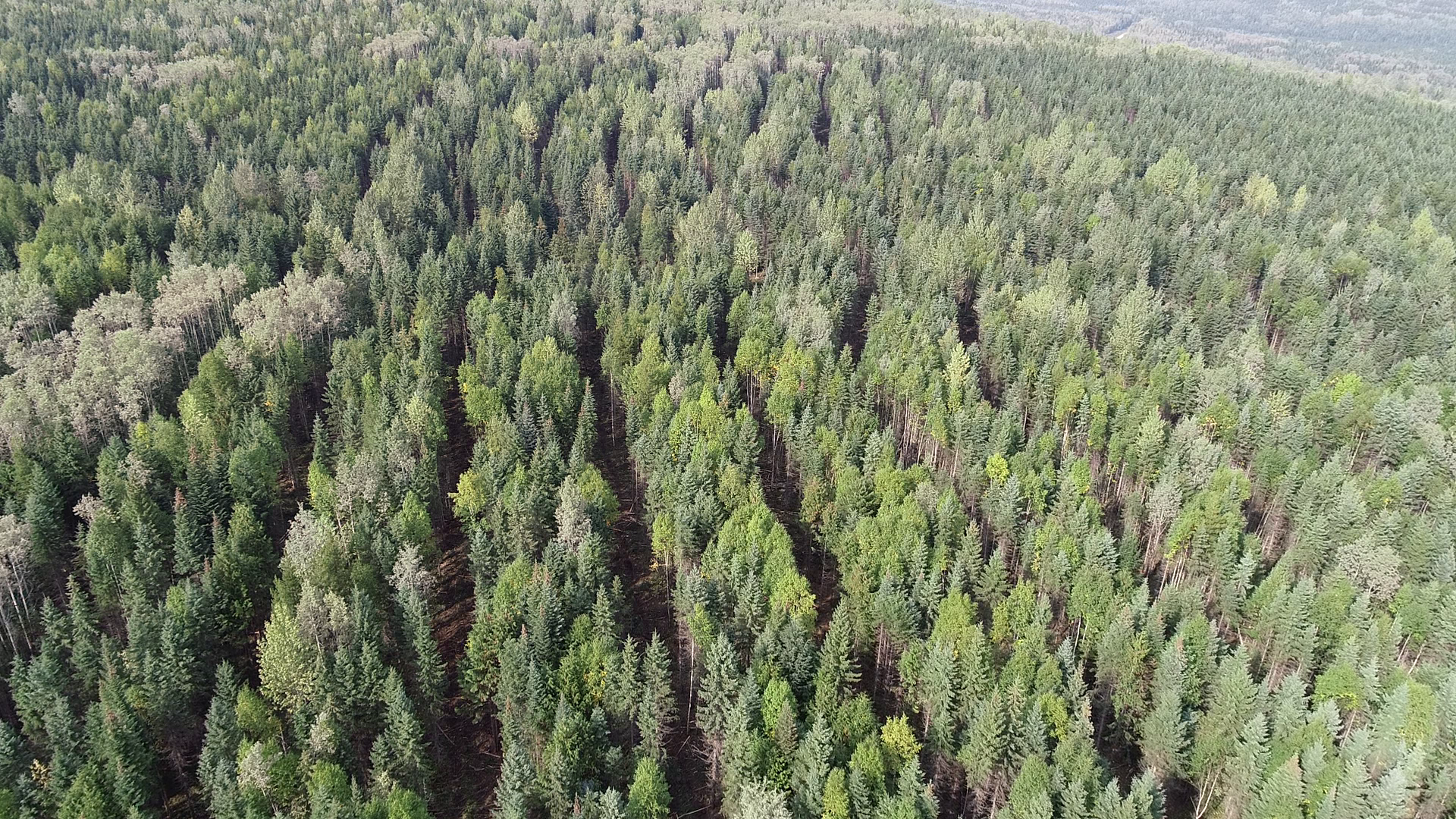
Photo: Aerial views of thinned stands
Credit: Lo-Bar
“We were expecting it to work well and it did,” stated Hiemstra. “One challenge we overcame was finding stands that were productive to work in. It was tough to get the right age and size combination. The stands we did the trial in were clear cuts that were planted approximately 40 years earlier.”
Overall, the success of this project was measured based on three factors: the completion of the eight-month trial period being profitable for Lo-Bar; higher percentage of quality trees without significant defects after thinning than prior to thinning; and additional logs being delivered to local mills that would otherwise be lost to mortality. The completed work met these three goals and Lo-Bar looks forward to continuing this type of harvesting into the future.
“The knowledge gained from this experience benefits Northern B.C.’s forest industry by providing access to a bit more fibre in the near term without sacrificing long term harvest,” said Hiemstra. “We’re able to capture natural mortality in the stand that we would never be able to use otherwise.”
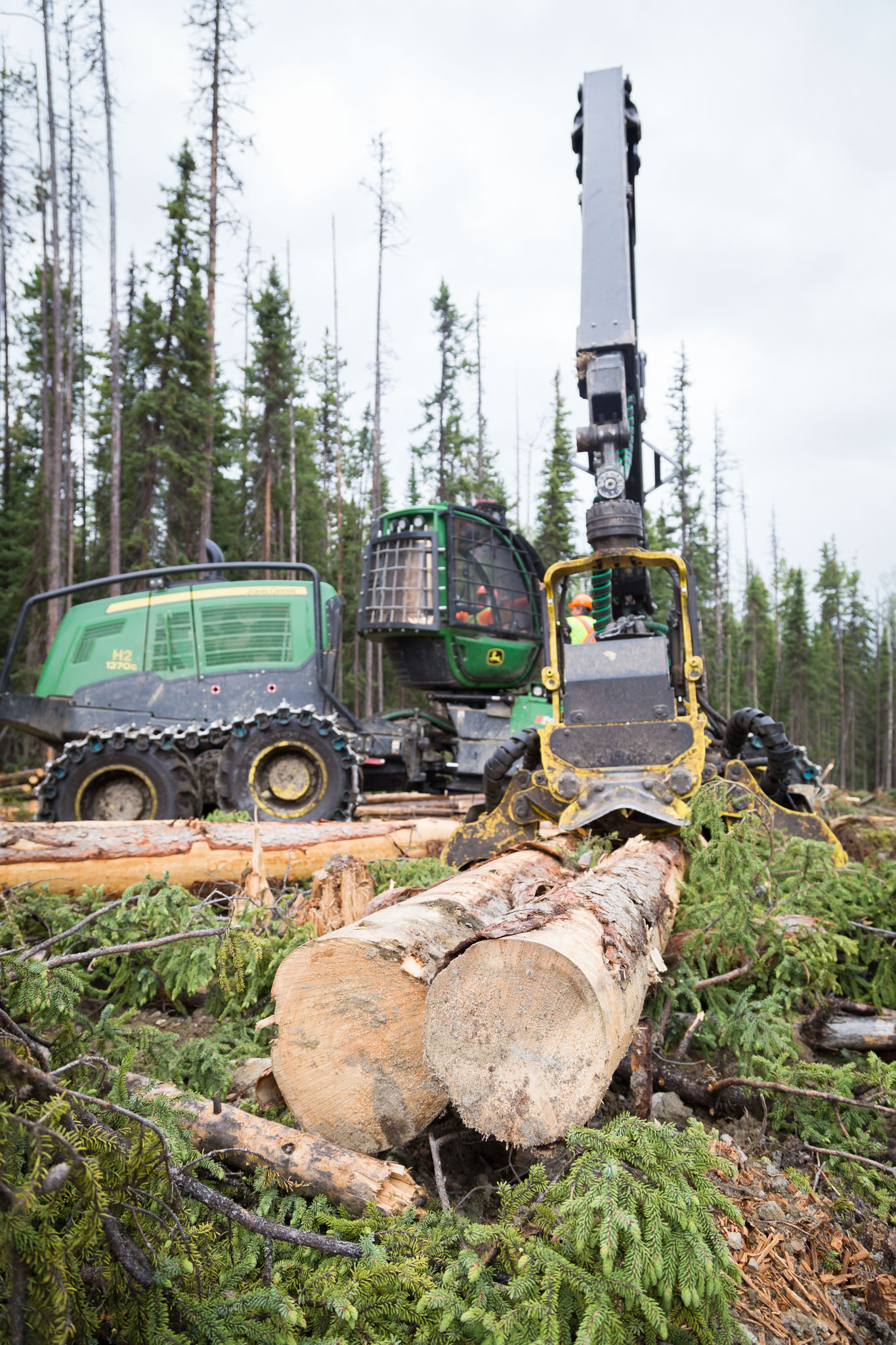
Lo-Bar is an established business based in Prince George that is a cut-to-length harvesting contractor that harvests and delivers forest products. Annually, they harvest and transport more than 800,000m3 of logs. Through the eight-month commercial thinning period, Lo-Bar added 19,409m3 to this amount, cutting and delivering timber gleaned from 196.1 hectares in the Purden Lake area, east of Prince George, where the trial took place.
The success of Lo-Bar’s project aligns closely with the goals of Northern Development’s Northern Industries Innovation Fund to support the diversification and expansion of Northern B.C.’s economy through increased business competitiveness, incremental revenue and job creation. Lo-Bar’s project fulfills this trio of measurements and also provides information to Northern B.C.’s forestry industry about the successful technique that encourages stronger growth in trees and harvests weaker trees before they die in the stand.
